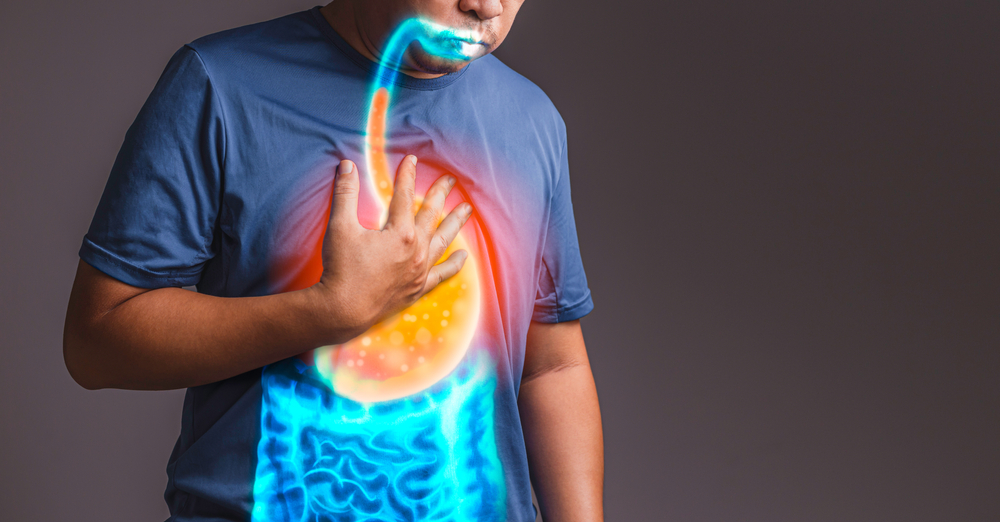Hiccups and heartburn are the rare side effects of certain cancers and their treatments. These are commonly noticed in cancer patients during their cancer treatment or palliative care. Other problems and medicines might also be the reason for hiccups and heartburn and their risk will be further increased after cancer treatment.
Hiccups in Cancer Patients:
Hiccups occur as a gulping sound when the diaphragm is irritated and contracts suddenly between normal breaths.

Reasons for Hiccups in Cancer Patients:
Hiccups can be due to various reasons, but the exact cause cannot be verified. Here are some of the reasons that can cause hiccups:
- Presence of fluid in the lungs or around the heart area
- High levels of sugar in the blood
- Alcohol intake
- Certain chemotherapy drugs can bring hiccups as a side effect
- Other drugs that may or may not be used for cancer such as antibiotics, antiemetics (drugs used to control nausea and vomiting), and steroids
- Tumors or blockages in the esophagus, liver, lungs, pancreas, kidney, or colon
- Injuries to the head, nerve, or brain
- Taking certain types of food or liquids
- Bloating and gas in the stomach area
- Cancerous or non-cancerous tumours that put pressure on the diaphragm
- Improper kidney functions
- Problems in the esophagus
- Sudden strokes
- Low levels of sodium, calcium, and potassium
- Temperature changes
- Stress and excitement
Treatment for Hiccups:
There are no treatments for hiccups. They are almost temporary and last for minutes to hours and go away without treatment. If hiccups continue for more than 1 – 2 days, they should be considered persistent/chronic/intractable hiccups. Intractable hiccups severely affect a person’s resting and eating habits and reduce their quality of life. If hiccups last longer than a month, it can be a sign of a serious problem. Only 10% of patients with advanced cancer deal with it. This type of prolonged hiccups can affect cancer patients in different ways.
Effects of Prolonged Hiccups in Cancer Patients:
- Tiredness
- Unable to intake fluids or food
- Anxiety or other emotional problems
- Loss of sleep
- Decreases ability to think or remember
- Irritation
- Problems in breathing
- Weight loss
- Reduces quality of life
- Hiccups can be painful for a patient with mesothelioma (presence of cancerous or non-cancerous tumors at the lining of the chest or abdomen)
Make an immediate appointment with your doctor if hiccups last more than 48 hours. Your doctor may recommend medications to help manage hiccups. Some remedies work efficiently on normal hiccups. But these remedies don’t work for a patient with persistent hiccups.
Here are a Few Ways to Manage Hiccups:
- Drink small amounts of water slowly
- Take deep breaths and hold for a few seconds, then exhale slowly
- Acupuncture (thin needles are inserted through the skin into targeted points)
- Gargling
For persistent hiccups, your doctor can prescribe medications to address them. At times, these medications don’t work for every patient and show adverse reactions like confusion, low blood pressure, nausea, tiredness, urinary retention, and feeling to sleep. We recommend you to ask your doctor, he/she will be the best person to treat hiccups based on your current condition.
Heartburn in Cancer Patients:
Some cancers and cancer treatments can cause stomach contents to move up to the esophagus. This leads to heartburn showing symptoms like a burning sensation in the chest, throat, or upper abdominal area. It often worsens after a meal or when you lay down.
Some patients suffer heartburn more in the evening or after going to bed at night. It could be a problem of indigestion or having excess acid in the stomach that forces stomach contents up into the esophagus resulting in heartburn.
If heartburn occurs very frequently, it is considered GERD (Gastroesophageal Reflux Disease). If heartburn is persistent for several years then it can lead to ulcers and is considered Barrett’s esophagus which increases the risk of esophageal cancer.
Acid reflux after Chemotherapy:
Acid reflux is common in cancer patients undergoing chemotherapy. It is a digestive disease in which stomach acid and bile irritate the lining of the food pipe (esophagus). Because chemo drugs work by killing rapidly growing cells which is a characteristic of cancer cells. Healthy cells at the lining of the gastrointestinal tract also grow faster and will be destroyed by chemo drugs. When these cells are damaged, the corrosive stomach acid can flow up into your esophagus causing symptoms like chest pain, burning feeling, sore throat, cough, bitter taste in the mouth, and difficulty swallowing and breathing.

Heartburn due to Acid Reflux after Chemotherapy
Read more about Side Effects of Chemotherapy https://onco.com/blog/side-effects-of-chemotherapy/
Reasons for Heartburn in Cancer Patients:
- Production of high levels of stomach acid
- Consuming high quantities of alcohol, caffeine, acidic juices, or carbonated beverages
- Smoking
- Certain chemotherapy drugs and other medications like aspirin, ibuprofen, etc
- Received radiation therapy to the chest or upper abdomen
- Taking high fat or high cholesterol diet
- Obesity
- Changes or blockages in the esophagus due to narrowing or tumour growth
Treatment for Heartburn:
Heartburn can be treated with self-care and medications like antacids. Take the medications as directed by your doctor along with following the below self-care measures.
Best Self-Care Ways to Manage Heartburn:
- Quit taking all forms of tobacco such as cigarettes, gutka, khaini, etc
- Limit caffeine and alcohol intake
- If you are overweight, try to lose some weight to reduce the effects of heartburn
- Eat small amounts of meals and avoid taking heavy meals at a time
- Eat slowly and enjoy your meal
- Don’t wear tight clothes while eating
- Don’t eat 1 – 2 hours before bedtime
- Raise and sit up for comfort if you feel like heartburn
- Don’t lie down immediately after eating
- Avoid or limit foods that worsen heartburn such as spicy foods, chocolates, high-fat foods, fried foods, pastries, cream, tomato and tomato products, coffee, citrus fruits, strong tea, soft drinks, and alcohol.
Let your care team know if your heartburn persists, or if the prescribed medications are not working.
When to Contact your Health Care Team?
Contact your health care team if you notice any symptoms that worsen your condition such as:
- Not relieved from nausea even after taking medication
- Difficulty breathing, eating and swallowing
- Heartburn and develops a puffy or bloated stomach
- Constipation
- Experience heartburn more than two times a week
- Persistent heartburn or gastric reflux despite following doctor’s recommendations
- Chest pain along with sweating, shortness of breath, and pain in the arm or jaw
- Symptoms persist or worsen even after taking medications
- Decreased appetite
- Unintentional weight loss along with heartburn
- Blood in vomit, cough, or bowels

